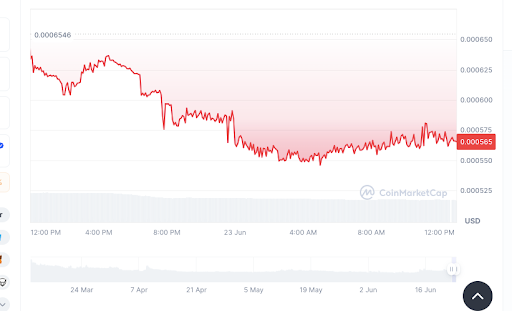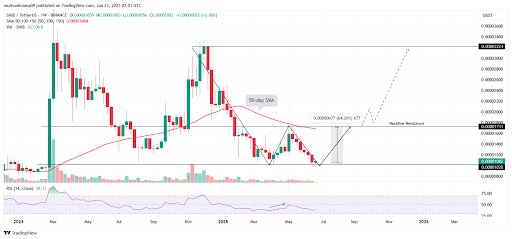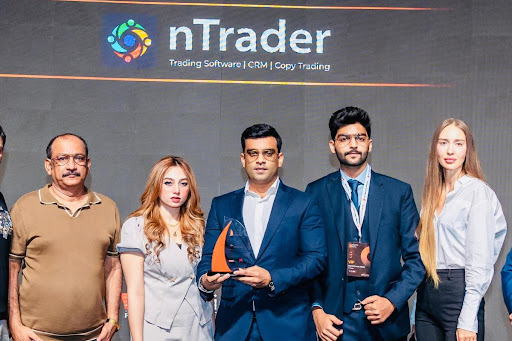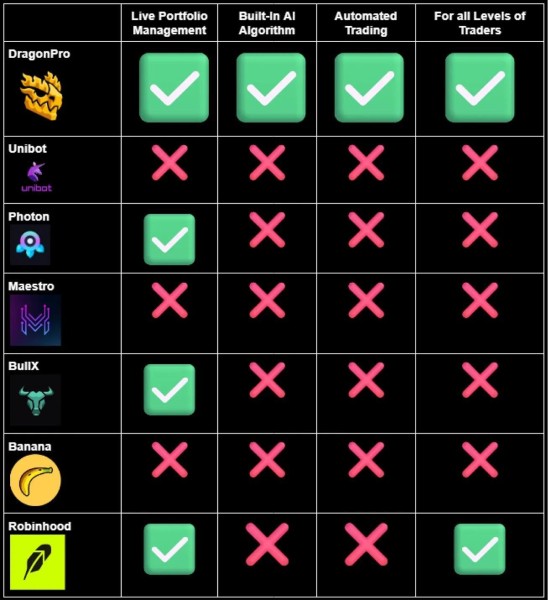Dubai, UAE, 30th June 2025, ZEX PR WIRE, NodeOps Network is thrilled to announce the successful completion of its exclusive Token Generation Event (TGE) on Binance Wallet, where $NODE tokens sold out within minutes of launch. The event, held on June 30 between 08:00 and 10:00 UTC, marked a major milestone for the project and showcased overwhelming demand from the global crypto community.

Hosted as the 27th TGE on Binance Wallet, this launch also marked a strategic first: participation was gated exclusively through Binance Alpha Points, a move that increased user engagement and rewarded Binance’s most active ecosystem participants with early access to NodeOps Network’ decentralized Compute coordination layer. In addition to Binance Wallet, $NODE is accessible on PancakeSwap, supporting broader participation while staying true to the principles of decentralization.
Following the oversubscription, $NODE officially launched for trading at 10:00 AM UTC on a curated set of top global exchanges, including KuCoin, OKX Wallet, Bitget, MEXC, HTX (formerly Huobi), BitMart, LBank, and BingX. This coordinated multi-exchange debut marks a pivotal moment in NodeOps Network’ journey to make decentralized Compute infrastructure accessible at scale, signaling the beginning of what the community is calling “DePIN 2.0”
NodeOps Network: Powering the Future of Decentralized Compute
NodeOps Network is a decentralized infrastructure coordination layer powering the next era of verifiable compute. Designed for scale, the protocol currently orchestrates over 61,000 active nodes, powers 60+ protocols, and has generated $3.8 million in revenue to date with $150M of assets under management.
Built on top of NodeOps Network, the NodeOps Platform offers a modular product suite—including a no-code Node Console, decentralized Compute Cloud, Staking Hub, Security Hub, and AI Agent Terminal designed to simplify infrastructure deployment across Web3 and AI. The platform addresses the growing complexity of operating compute and node infrastructure in a multi-chain world, supporting networks across BNB Chain, Ethereum, and emerging Layer 2 solutions.
Redefining Token Launches Through Strategic Access
Token Generation Events serve as critical inflection points in the lifecycle of emerging crypto projects, offering early supporters access to native tokens before widespread distribution. With a proven track record of spotlighting successful Web3 projects, Binance continues to play a pivotal role in bridging high-potential protocols with its global user base.
The introduction of Alpha Points as the sole access mechanism to the NodeOps Network TGE signals a clear shift in launch strategy. Traditionally earned through platform engagement, Alpha Points now serve as high-utility assets rewarding loyal, active users with exclusive opportunities to participate in Binance-curated launches.
Tokenomics for Sustainability
$NODE’s tokenomics emphasize stability, real usage, and economic alignment. With a total genesis supply of 678,833,730 tokens, the distribution model incorporates long-term vesting, protocol-based emissions, and a burn-and-mint equilibrium that ties token creation to on-chain revenue. This structure promotes a responsible token economy, ensuring that supply growth is directly tied to value creation, not speculative emissions.
In line with NodeOps’ commitment to transparency and user-centricity, it released a first-of-its-kind interactive tokenomics portal to help users model and better understand the dynamic nature of $NODE’s tokenomics. Its emissions follow a dynamic mint-and-burn model tied to real network usage, anchoring long-term value to platform demand.
Token Allocation Highlights:
- Community & Ecosystem: 47.5%
- Early Backers: 22.5%
- Protocol Incentives: 15%
- Initial Contributors: 15%
NodeOps is positioning itself as the leading DePIN infrastructure platform, uniting tokenized incentives, AI automation, and decentralized compute into a single interface for the future of verifiable systems.
About NodeOps Network
NodeOps Network is an AI-powered, decentralized Compute coordination layer that automates validator and node operations across blockchain networks. Supporting over 60 protocols and 61,000 nodes, NodeOps delivers scalable infrastructure tooling and staking solutions that power the next generation of decentralized applications.
For more information, please visit https://nodeops.network/







